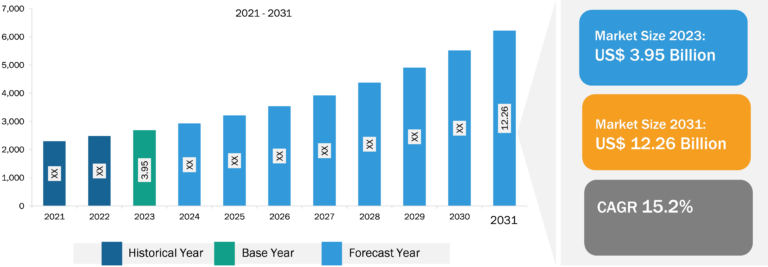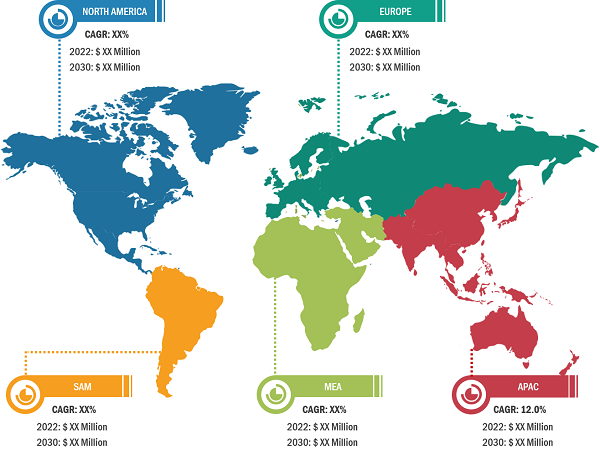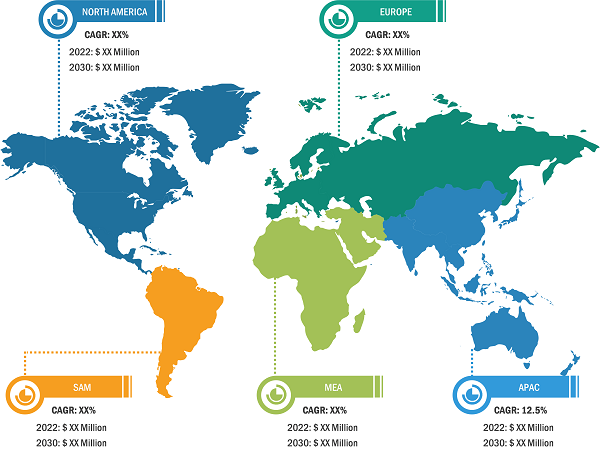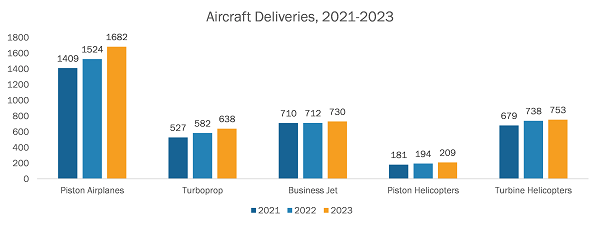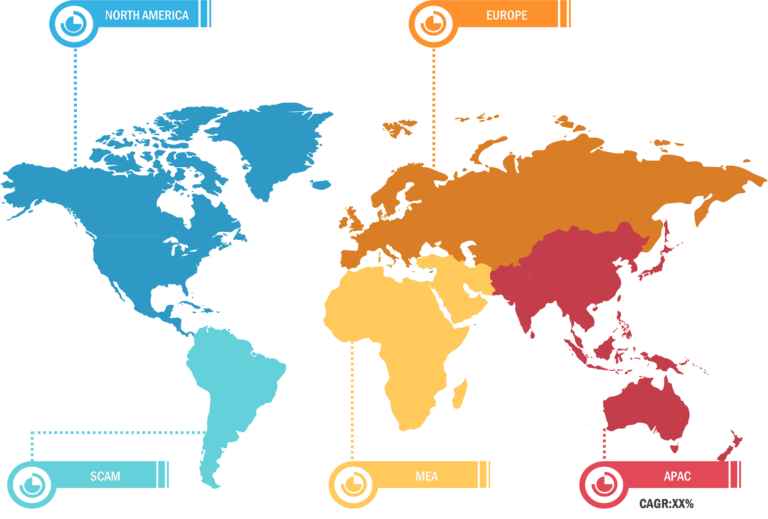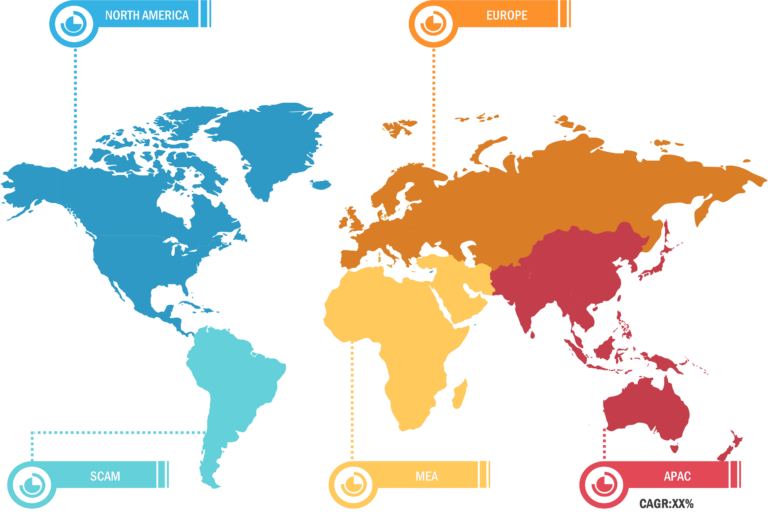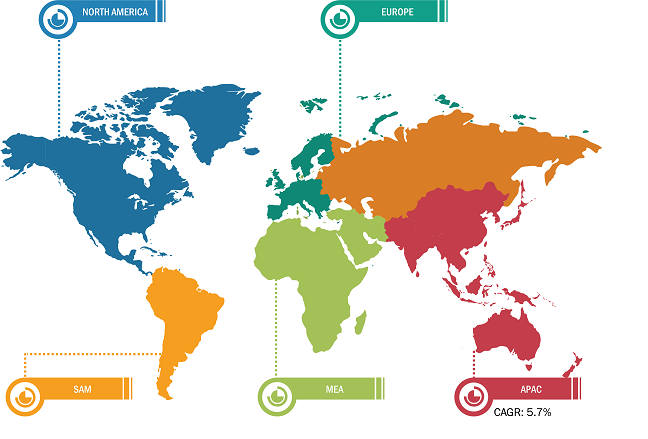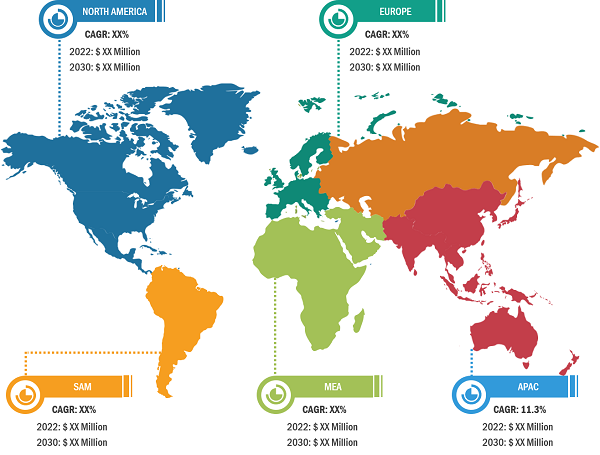
Asset Integrity Management Market
With the growing operational needs of industries such as oil & gas and power, industry players are adopting digitalization, automation, and other technologies to enhance efficiency. Digitalization and automation demand asset integrity management software and services, as digitalization reduces human intervention for high-cost decision-making. To cater to this growing demand, various asset integrity management market players across the globe are involved in organic and inorganic growth strategies, including product launches, mergers & acquisitions, and software upgradation, among others. A few of the growth strategies by asset integrity management market players are listed below:
- As of September 2021, Antea, a global leader in asset integrity management software, launched a new product to their lineup—AnteaSTART—a mechanical integrity software version tailored particularly to the basic needs of single-site operators. With this latest subscription-based model, the operators of single-site oil & gas, chemical, or power plants might harness the advanced technology for real-time visualization of their assets—enabling them to make rapid, evidence-based decisions, leading to improved maintenance and reliability, reduced inspection costs, and fewer business shutdowns.
- As of December 2020, Omni launched a new digital full-lifecycle asset integrity management solution developed by industry experts, allowing companies to plan, predict, manage, and optimize their asset integrity management programs.
Thus, the rising adoption of growth strategies by the market players drives the asset integrity management market growth.

Europe Asset Integrity Management Market
The Europe asset integrity management market is segmented into France, Germany, Russia, Italy, the UK, and the Rest of Europe. Oil and gas pipelines in Europe are a highly diversified network spread across 50 countries in this region. Pipelines include cross-border lines, international pipelines that originate or end in Europe, and domestic pipelines used for the supply of oil, gas, and various other materials. In terms of the length of pipelines laid, Europe is the second-largest region after North America. Oil and natural gas are distributed to the European nations through these pipelines. Russian Federation is the largest supplier of fossil fuels to the European Union. Approximately 40% of oil and natural gas consumed by the EU is imported from the Russian Federation. The supply chain for oil & gas in Europe is significantly different than other regions. Third-party access in the EU regulates the transmission of natural gas, and it is distributed on fixed pipelines. Therefore, the use of asset integrity management is majorly by the natural gas pipeline owners and operators, facilitating the expansion of the Europe asset integrity management market share. Moreover, several chemical manufacturers in the region are signing agreements to use risk-based inspection asset integrity software. As of June 2021, INEOS signed an agreement to use Antea’s risk-based inspection asset integrity software. INEOS determined the Antea Platform, with its certified API 581-compliant RBI and comprehensive IDMS module, to be a robust, reliable solution that adheres to their requirements. The growing demand for asset integrity management software is propelling the growth of the market. Further, several players across Europe are involved in mergers and acquisitions. For instance, in January 2024, Cenosco, which provides asset integrity software, acquired Shell’s integrity management system (IMS) software—making the software available on a broader scale in oil & gas and chemical sectors. Thus, such acquisitions by companies propelled the asset integrity management market growth.
In Europe, many companies are making significant investments in digital solutions to guarantee accurate and robust protection to assure endurance during an upgrade of the infrastructure, this fuels the asset integrity management market. Moreover, to properly handle the aging infrastructures, a different management approach is needed; along with this, the costs of new European infrastructures are more than maintaining the existing network. Hence, authorities must establish a healthy, available, and usable transport infrastructure network, mainly by preserving and prolonging the lifetime of the existing network. Thus, the region widely adopts asset integrity management solutions to maintain the assets in the infrastructures, which drives the asset integrity management market.
Segmental Overview
The “asset integrity management market analysis” has been carried out by considering the following segments: service type and industry. Based on service type, the asset integrity management market is segmented into non-destructive testing (NDT) inspection, corrosion management, pipeline integrity management, structural integrity management, risk-based inspection (RBI), and others. Based on industry, the asset integrity management market is segmented into oil & gas, power, marine, mining, aerospace, and others.
The non-destructive testing (NDT) inspection segment held the largest asset integrity management market share in 2022. Non-destructive testing (NDT) services include a wide range of techniques used to evaluate the properties of a material, product, system, part, or weld without materially affecting the integrity of the plant being investigated or inspected under the test procedure. The service is used to evaluate a wide range of components and systems quickly and accurately both onshore and offshore. Several benefits provided by NDT inspection services increase its adoption among industries. The service is a comprehensive testing method that mitigates environmental risks, prevents accidents, reduces process downtime, ensures quality control, and saves costs by improving safety. Thus, the factors mentioned above are boosting the demand for NDT inspection, which is expected to further fuel the asset integrity management market growth during the forecast period.
Market Analysis: Competitive Landscape and Key Developments
The asset integrity management market forecast is estimated on the basis of various secondary and primary research findings such as key company publications, association data, and databases. Aruba Networks (HP Enterprise); Airista Flow, Inc.; Decawave Limited; Impinj, Inc; Sonitor Technologies; Stanley Healthcare; Siemens; Teletracking Technologies, Inc.; Ubisense Ltd; and Zebra Technologies Corp. are among the prominent players profiled in the asset integrity management market report. In addition, several other players have been studied and analyzed during the study to get a holistic view of the market and its ecosystem. The market report provides detailed market insights to help major players strategize their growth. A few strategic initiatives by major market players are listed below:
- In May 2023, Stork, a Fluor company, was awarded a five-year contract as well as five one-year extension options with London-based Harbour Energy. The contract extends Stork’s asset integrity services in the North Sea on Harbour Energy’s Armada, Everest, Lomond, and Erskine (AELE) hub. Also, it extends services to Solan, the J-Area, and the Great Britannia Area.
- In August 2021, DNV delivered pipeline integrity solutions to the national gas company of Trinidad and Tobago Limited. DNV’s Synergi pipeline is being implemented at NGC to support safe and efficient pipeline operations.

